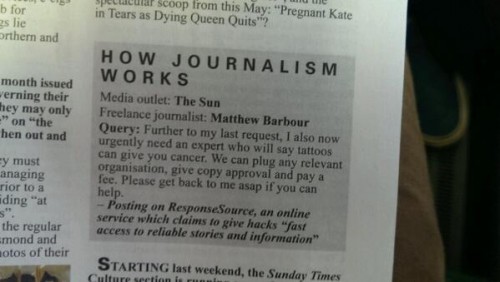Justine has story of sexual assault in the tech industry. Long story short, she was at a Ruby conference (they apparently have a reputation for boozing it up at Ruby events), she was drinking, her boss was drinking, he took their mutual inebriation as an excuse to take serious liberties with her, she said “no”, he wouldn’t take no for an answer, and another person had to step in and peel him away. The event was serious enough that her boss was subject to a later HR investigation and was fired.
All of these events have been thoroughly corroborated by a witness, and by the guy who stepped in. The assaulter has announced that he was in “funemployment”, of course expressing no remorse or guilt — you wouldn’t know it from what he wrote that he stuck his hand down an employees pants and his tongue down her throat while she vocally protested.
The problem is the aftermath. She liked and respected her boss before this incident, and now she’s wracked with guilt and self-recrimination and just general stress.
Joe O’Brien’s sexual assault on me impacted my life then and still continues to this day. Initially I went through a period of self-punishment. Convinced there was something I did wrong that made this assault happen to me. Did I wear something wrong? Did I lead someone on? Hugs hand forehead kisses have always been a big part of my relationships with my co-workers. We were always a tight knit family. But now I felt it was all wrong. Every day I went to work I second guessed what I was wearing. I kept my mouth shut for fear I’d say something wrong or misleading. In the worst case I stopped eating and lost 30 pounds in two months. People were worried but again, for the most part left me alone. Maybe out of awkwardness, maybe because they didn’t know what to say, maybe because they had no clue what was going on because nobody was notified.
These issues still affected me months later. I went months without eating. My boyfriend at the time witnessed me turn from a voluptuous woman to what he called a skeleton in just two short months. I couldn’t stand to be touched by him anymore. Our relationship fell apart within just a few weeks. I came home every night and drank myself stupid just so I didn’t have to think about the anxiety I felt having to go back to the office the next morning. Friday nights and Saturdays were mostly fine but pretty much on the dot, 8:00pm on a Sunday I would start hyperventilating, crying and binge drinking so I didn’t have to think about going back to the office the following morning.
These are appropriate responses to an event she took very seriously and found extremely traumatic — which also conflicted with her career and the community she was working within. This is how she reacted to an occasion when she was disempowered and manhandled and made to feel helpless by a person she had trusted, and no one else can tell her how she should feel about it.
But they do. Oh, they do.
Do not read the comments on Justine’s post unless you really want to lose all faith in humanity. I repeat, do not read the comments. They are the true horror here.
They tell her that she’s weak and she needs to toughen up. She’s a loser. “Bitch deserved it.” She should have called the cops! Because she didn’t call the cops, it was clearly not a major problem. She should be ashamed for costing a guy his job when his offense didn’t even rise to a level that would justify calling the cops. She’s an attention whore. “I hope you get raped tomorrow you dumb slut”. She enjoyed getting her vagina fingered, if they’d just gotten a room and had sex she’d be happy now. She overreacted. There are “people dying in Africa,” she should shut up. She’s playing the victim. She was drunk, so she deserved it. “another example how a woman can destroy a man’s life at a whim with a rape accusation.” She’s a whore. Women “simply don’t have the mental tools to survive outside the kitchen”.
Weirdly, Richard Stallman shows up to lecture everyone on how to properly refer to GNU/Linux.
There are rape threats. There are death threats. “Men are men” and “there is no rape culture.”
There are people with men’s names and people with women’s names shrieking at her — I even recognized some of them as people who have been banned here.
Don’t read that horrible comment thread. But if you do, recognize it for what it is: evidence of the truth that our culture has a sick attitude towards women.



